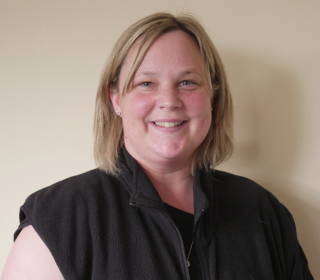Higher Level Apprenticeship Assistant Practitioner
Delivered in our state-of-the-art simulation suite, you will learn from multi-professionals with vast academic experience in teaching and research. Learn in a supportive environment with clinical practitioners providing a broad knowledge base across health and social care.


Be graduate ready - specialist modules and pathways designed collaboratively with employers

Apply now for this course
Entry requirements
A minimum of three A-levels BBB - DDD
BTEC National Diploma/QCF Extended Diploma DDM-MMP
Pass an Access to HE Diploma with at least 30 credits at merit
GCSE Maths & English (or equivalent) grade 4/C
T Level P-M Equivalent qualifications may be considered, including workplace delivered NVQs
Getting AHEAD Bridging Programme We are looking for applicants who are passionate about health care professions and providing person-centred care.
UCAS points 72 - 120
UCAS code Apply direct
UCAS institution code P63
Duration Full time
Want to know more about apprenticeships?
Contact our apprenticeship team
Course Summary
Delivered in our first-class simulation suite, you will learn from multi-professionals with vast academic experience in teaching and research. Learn in a supportive environment with clinical practitioners providing a broad knowledge base across health and social care.
Why this course at Marjon?
Taught by experts within a wide range of multi-professional clinical backgrounds.
Close working relationships with your workforce to meet the needs of the working environment and patient-centred care.
Build your skillset in an academic and community-based environment supporting you to access your development as an assistant practitioner.
Be supported as a learner to become an evidence-based accountable professional with robust critical thinking, clinical judgement, complex problem solving, and effective communication in a working environment with colleagues and patients.
Be adaptable and have learned skills and tools to effectively manage your wellbeing in an ever-changing and fast-paced workplace.
Shape your future in a safe and supportive learning environment. We’re proud to embed the Safe Learning Environment Charter into our nursing programmes—ensuring you train in a culture that values inclusion, patient safety, and psychological wellbeing.
Modules for this course
1st Year
Foundations of Professional Practice
Introduction to Clinical Skills
Applied Anatomy and Physiology in Health and Disease
Practice Based Learning 1
Positive Mental Health, Wellbeing and Resilience
Communication and Working in Teams
2nd Year
Practice Based Learning 2
Research in Evidence Based Practice
Pathophysiology and Pharmacology
Choose your module
Specialist area specific module
How you’ll be taught and assessed?
How will you be taught?
Weekly taught days are mostly delivered on our Plymouth Campus, located close to Derriford Hospital. The programme includes both academic theory and clinical practice, which are delivered side-by-side. During these taught days there will be lectures, tutorials, seminars, workshops, clinical simulation, group discussions, debates, peer support, study skills and much much more.
How will you be assessed?
The programme specifically prepares students for professional practice and all assessments are there to ensure understanding and application of the knowledge skills and professional behaviours required. Academic assessments include essays, case studies, In-Class Tests, practical assessments in clinical skills lab, academic presentations and literature reviews. Students maintain a Practice Assessment Document (PAD) and Professional Practice Portfolio (PPP).

Paul has over 20 years experience working in the NHS across secondary and primary care settings, and has been working as a Advanced Clinical Practitioner for the last six years. He has experience in leadership of teams and service design and clinical skills and decision making, with teaching experience in academia and also non-academia subjects supporting the work force to be the best clinician they can be in the ever changing landscape of health.
Frequently asked questions
Q1 What other skills are needed?
Q2 What books will I need?
Q3 What inter-programme student support is available?
Q4 What support will I get from the University?
Q5 What will I pay?
Q6 I am interested, what next?
Fees and funding
Fees UK students: £14,000 (correct apprenticeship fees as of 1 February 2023)
Additional costs:
- Disclosure and Barring Service (DBS) enhanced check
- Occupational health declaration (or evidence that one has been completed)
- Evidence of all required vaccinations being up-to-date
- Travel to and from placement
- Accommodation and general living costs
- Textbooks
- Stationary
- Printing/photocopying
- Membership of a union (optional but advised)
- Possible discretionary trips and activities
Funding available for this course
The fees are covered by your employer and the Government. You will not be required to pay any tuition fees or take out a tuition loan.

